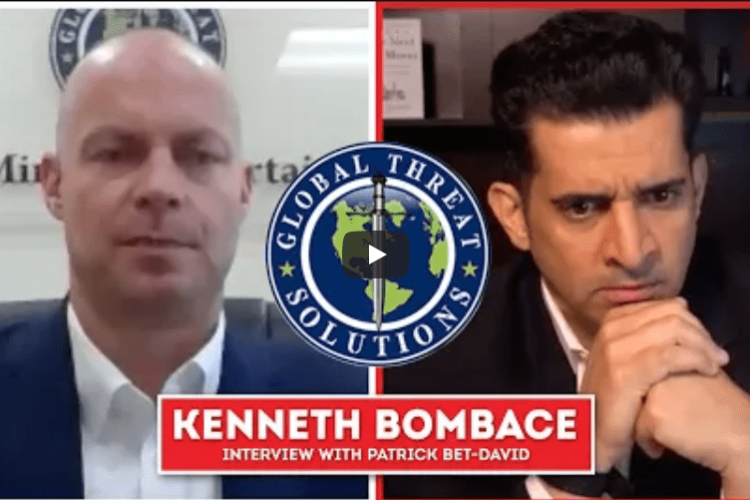
- Bodyguards go through intense training to be ready to protect celebrity clients, CEOs, and politicians.
- Bodyguards, or executive protection agents, can make upwards of $200,000, putting their lives on the line for VIPs.
- Business Insider followed five new recruits through an executive protection training course in Long Island, New York, hosted by security firm Global Threat Solutions.
- Among the VIP clients Global Threat Solutions can disclose, it’s provided security details for Joe Biden, Kamala Harris, and Michael Bloomberg.
Following is a transcription of the video.
– [yelling]
Joseph Gelling: Move, move, move, move, move, move, move, move, move!
Kerry: In the car, in the car. Stay down, sir. Go, go, go, go.
Gelling: If you’re getting into this job, you should be ready. Your life may be coming behind your client’s.
Kenneth Bombace: You need to be someone who is at least potentially prepared to put yourself at great risk. [gunfire] A lot of times when you say bodyguard, people think of somebody who is enormous, but this is a thinking person’s game. Being able to maintain calm in all sorts of situations, think on your feet, and adapt to change constantly. A highly qualified executive protection agent, they’ll make anywhere from $100,000, they can make over $200,000 easily.
My name is Ken Bombace, and I’m the chief executive officer of Global Threat Solutions. My firm has been contracted to provide services by celebrities, entertainers, corporate executives of all types. Nancy Pelosi, Joe Biden, President Obama, we’ve worked for all of them.
Obviously the primary goal is to keep our principal, we call them, or our client, safe, but there’s so much more than that. So, what we’re offering is a three-day executive protection career course, and include everything from classroom to practical exercises that actually include real role players that will be executives. They’re gonna have to do an entire mission, from the beginning to the end.
A large percentage of executive protection agents come from either military backgrounds or law-enforcement backgrounds.
Jose Castillo: My name is Jose. Currently, I’m an active law-enforcement officer in northern New Jersey, specifically homicide detective.
Gelling: My name’s Joseph Gelling. I’m a former reconnaissance Marine.
Bombace: I really like the military community for executive protection agents. This job is very demanding. It could be long days. You have to maintain flexibility, constantly adapt to change, and the military background really lends itself to that.
We obviously want somebody who’s physically fit. That’s a requirement, but you do not have to be 260 pounds and 6-foot-4. Absolutely not. If you were to look at many details that are out there working for different clients around the country, you’ll see few people like that.
There is a lot of classroom. People need to know the fundamentals, the basics of executive protection.
Sam Tareky: We’re gonna describe what actions each person’s gonna take, how he’s gonna move around a venue.
Bombace: We’ll go over the roles and positions of an executive protection team. There’s many positions within a team, and there’s different types of formations. You would see what we call a diamond formation. It provides complete, 360 coverage of a principal.
Tareky: It’s utilized more in high-threat environments and or/open areas.
Bombace: But here in the States, we will often tone down those formations. They don’t want the visibility of it. The client wants people not to even know they have security. So they’ll distance themselves a little more from the client.
Gelling: Sometimes you might think, oh, like, I’ll just be attached to his hip at all times and nobody will ever touch him, but you have to be OK with him maybe having to go into the bathroom on his own. Especially if it’s a female, you’re not going into that bathroom with them.
Bombace: Many of the details that we provide for executives, for instance, will be one or two people, a driver and one agent.
Tareky: VIPs do not want to be bothered with any family issues. Don’t talk; don’t be heard.
Castillo: Normally, you’re a fly on the wall.
Ray Tierney: Let’s just say we’re walking into an exit, point B, and we mess up a formation. He doesn’t know what that formation is; you just gotta be seamless.
Tareky: We’re gonna be practicing arrivals and departures, strong-side drops and pickups. You go to the door to crack it. The minute he’s cracking the door, that’s when you step over here.
Bombace: When they’re exiting that vehicle, or exiting a venue and getting into a vehicle, that is definitely one of the most vulnerable parts of the work we do.
Tareky: You gonna be like, “Sir, can you follow me?” Now you lead. You flow behind them. You’re the primary now. Now you have, like, a three-man detail covering the principal.
Chris Schiavo: In our training scenarios, I will be playing the adversary, or bad guy, and I will be using this weapon. They’re very realistic. [gunshot] It actually sounds real, and it actually looks real. The only difference is this little orange tip, this thing that signifies that it’s a toy.
Tareky: The next scenario, we have the team bringing up our VIP. He’s got a little lecture he’s gonna be giving in front of a crowd of people.
[shouts] [gunshots] [door bangs]
Jacob: This way. Get in, get in.
Tareky: One member handled the threat. The rest of the team got the client off the X.
Bombace: When we have to get the principal off the X, it means get them out of a certain area, scenario, as quickly and seamlessly as we can.
Gelling: It’s definitely a little different, because as a Marine, you see it in all the commercials, you run towards the sound of danger.
Bombace: Sometimes we have to retrain people for this, because people who have worked in law enforcement and military, their natural inclination might be to go towards a threat. In executive protection, we wanna just get away as fast as possible.
Tareky: They’re not here for the battle.
Bombace: This is a thinking person’s game. This is not a brute-force game. We need people who can think on their feet, make quick decisions, adapt to changes, and get the mission done.
Castillo: You always have to have your eyes everywhere, just, you know, make sure there’s no threats or anything like that.
Bombace: In this field, we have thought of all that before an incident takes place.
Castillo: That’s why you have that guy that goes a day before, looks for everything, looks out for exits, look out for entrances, talks to people that are from the building.
Bombace: The advance site visit, or planning before a mission, is what will set you up for success.
Castillo: So, you got one exit over there, and you have another, you have one more other exit when you walk outside.
Bombace: We know far more than the principal knows about every place they’re going. How we’re gonna enter, who will be there, the points of contact, even if things do arise. Changes, last minute. You’ll be able to adapt much easier than if you have not done that proper planning.
Bombace: Final culminating practical exercise is critical, because we get to see all the skills they learn during the course in play, and I have all my instructors monitoring them from a distance.
Kerry: The weather is a little rainy, but if you like rain, we’re gonna be getting in this first vehicle. But we’re gonna basically walk them right out front, put them right into the vehicle, seat them, let them know where we’re going next, ask if he needs anything, and that’s it. Should be smooth sailing.
Bombace: Their schedules are often very demanding. Not only their minutes and hours, their seconds are worth a lot of money. So it’s our job to make sure they get where they’re going safely and in a timely manner.
Gelling: They’re pulling away, we lost them at the light, but it’s like, they’re still gonna make sure they get to where they need to be. Nothing ever is gonna happen how you plan it, and you need to be able to adapt and have contingencies for each and every plan and course of action.
Tierney: Jose, you read me?
Gelling: We lost service. You know, it’s not the end of the world. If we can’t tell the advance that we’re gonna be there in two minutes, and, like, he knows we’re coming, I told him 10 minutes out, so he can prepare for that time.
Castillo: If one guy, not that he messes up, but goes a different route, you got that guy that’s gonna come in and say, “All right, I got you, go do what you have to do. I’ll come and take care of it.”
Gelling: Trying to stay close to where we could react if something were to happen or if they needed us, but far enough away and trying to look as inconspicuous as possible.
Tareky: Stretch like you’re doing, ’cause you might be in front of that door for three hours.
Bombace: I think the initial draw might be an inaccurate one for some people when they hear the term bodyguard. “Wow, this is exciting. This is the career I wanna get into.” And it can at times. However, there’s a lot of standing in hallways. There’s a lot of watching people for countless hours, it could be. Boredom can be your greatest enemy.
Gelling: You spend so many hours of just what seems like nothing, until that something happens. We need to always stay vigilant.
Sachin Narode: I did not notice they did this first time. In fact, I thought they were professional and thorough throughout the entire drill. Every single step. They were five steps ahead of us, making sure we are well taken care of in terms of security, protection, and convenience.
Bombace: I thought today went great. The practical exercise from beginning to end, it was great to see that the agents, first of all were prepared, but also, we were able to see them react to some challenges, where they would have to react on their feet and it wasn’t part of the plan.
Gelling: The hardest part of the practical is making sure everybody’s on the same page. Castillo: Guys were on point. They knew what to do with the communications, which is key. It went down pretty well.
Bombace: In this exact course, there’s no one here that I wouldn’t hire for our company to do protection services. This is a great group of people.
Gelling: In this world, all these people with money, they have high expectations, and you need to live up to them. You can’t make excuses.
Castillo: If you make that one, single error, you’re done. You gotta be on your A game at all times. You know, these are high clienteles who expect the best and want the best.


